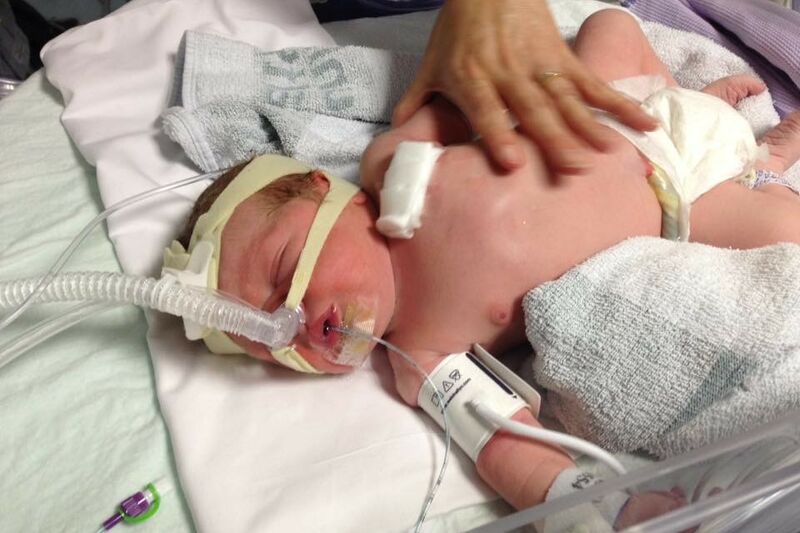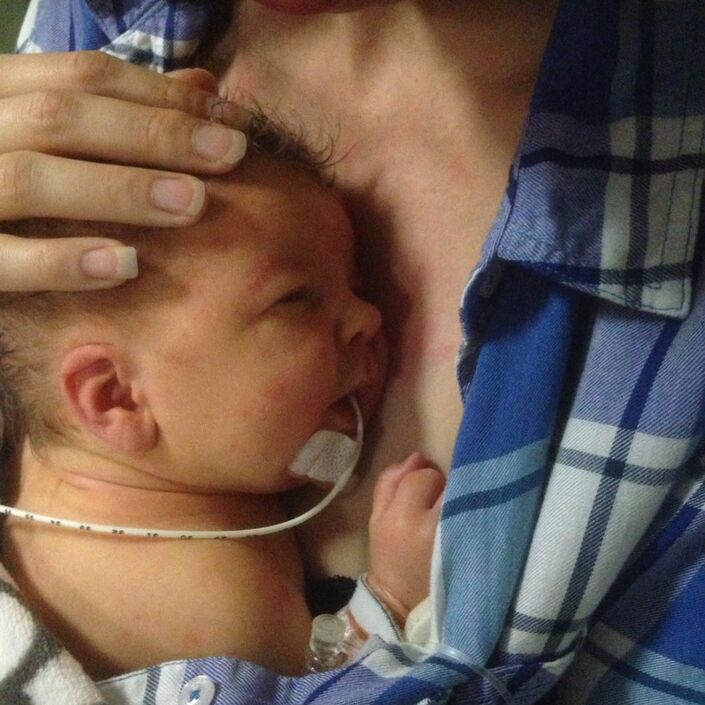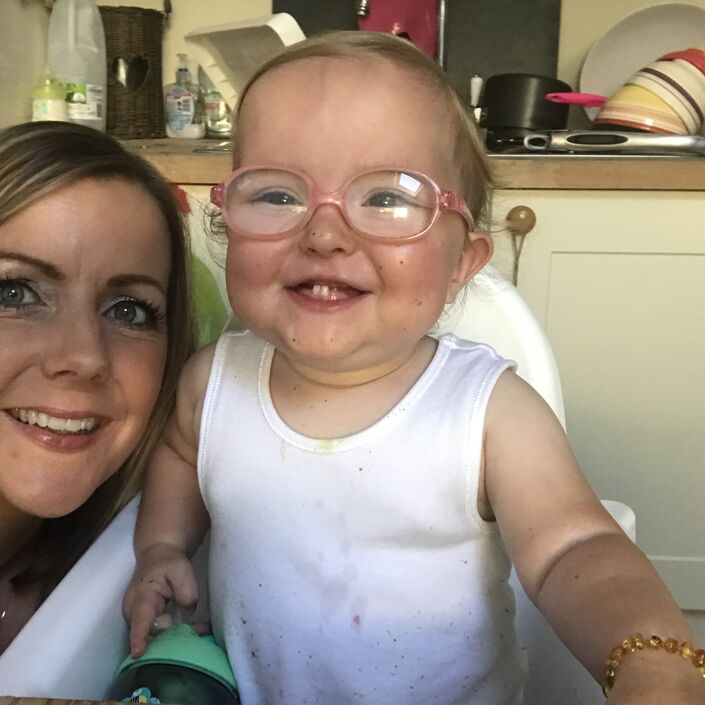I had a healthy pregnancy all the way through - apart from one scare at 36 weeks - which turned out to be nothing. Our due date came and went, which was no surprise, as Henry’s older brother, Will, was 11 days late.
I was booked in to be induced at 40+1, and would be closely monitored, as Henry’s brother was born through an emergency caesarean. On Monday 21 September I dropped Will at school and my partner Mark and I went to the hospital, where I was induced. When Wednesday arrived and there was still nothing happening, they decided to help things along by setting up a drip. Suddenly Henry’s heart rate dropped to 58 beats per minute. I was rushed into theatre, and Henry was born - now with a healthy heart rate - weighing 9lb 2oz and 13 days overdue.
I heard him cry once, but then everything went scarily quiet. Someone came and told us that he was having difficulty breathing and they would have to take him upstairs to the special care baby unit (SBCU). They wheeled the baby past me before taking him upstairs. I was taken to recovery. Mark went to see Henry and came back with photos for me.
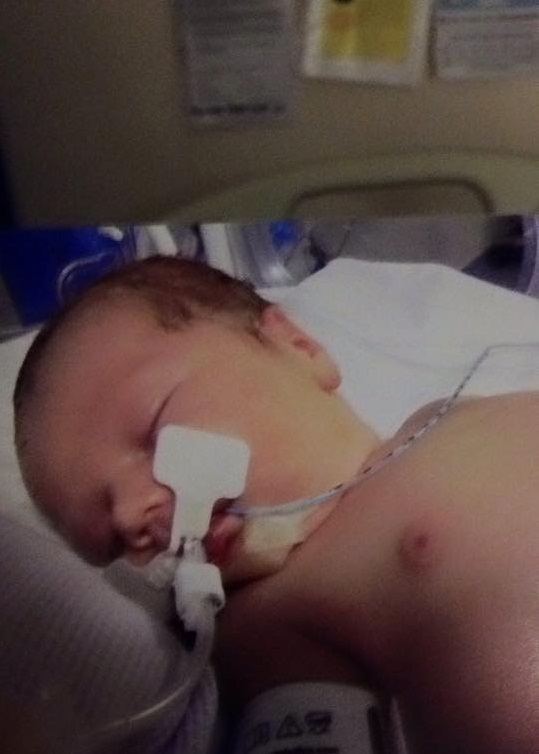
I think it was the next morning that they offered to take me upstairs to see Henry. He was fully ventilated. Mark took me in a wheelchair but we didn't stay long because I felt like I was in the way. They told me they had to sedate him, as he kept grabbing his tubes and wires. He had a chest drain in because he had over inflated his lungs. Air had escaped into his chest, which meant with his next breath he couldn't inflate one of his lungs fully. The problem would have gotten worse with each breath if he wasn’t treated. This condition is called a pneumothorax or collapsed lung.
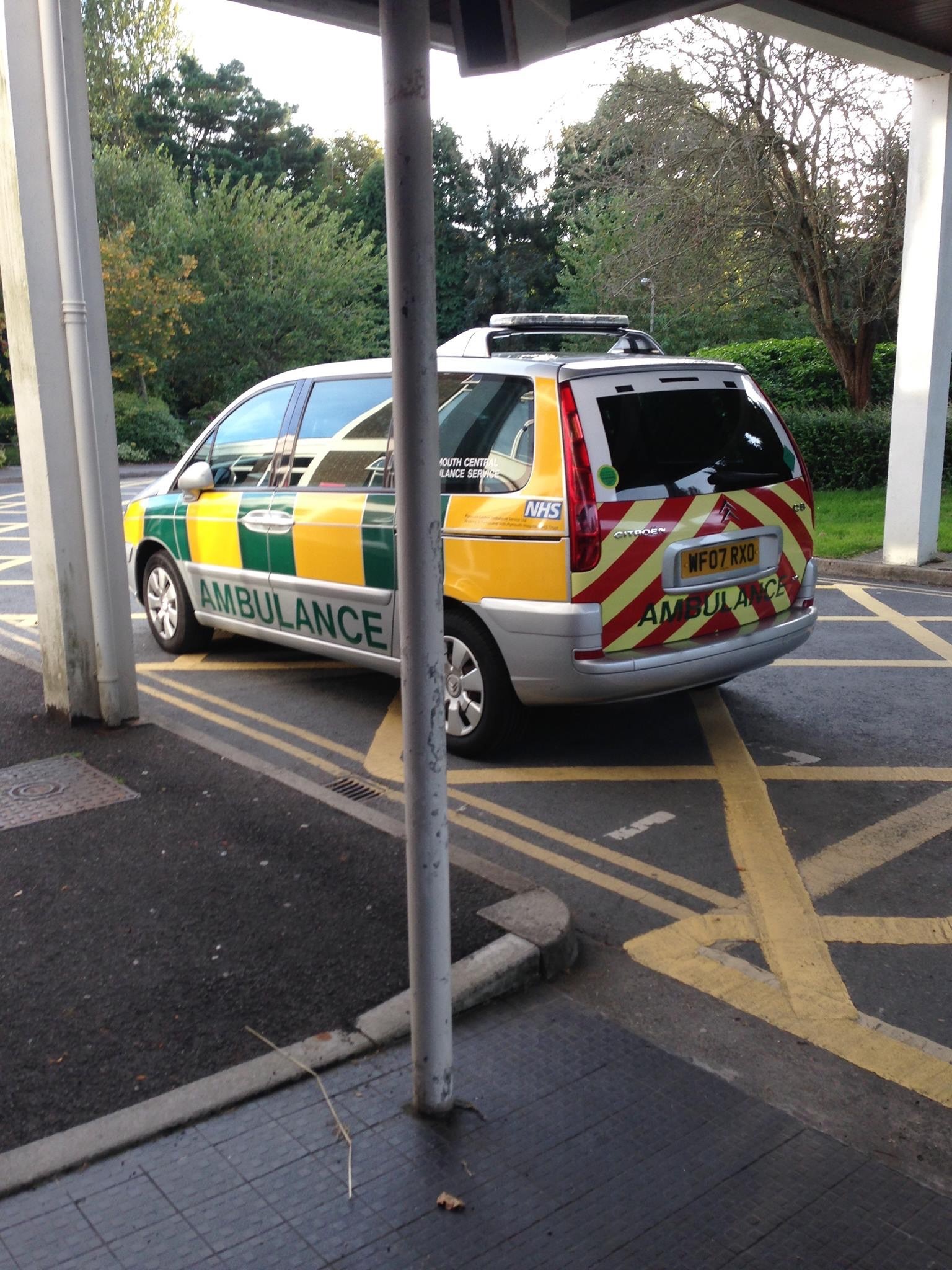
A transfer team came to take Henry to the Exeter neonatal unit. There was no room in the ambulance, so I followed on that evening.
When I arrived in Exeter, a midwife took me straight down to see Henry, and let me stay as long as I liked - it was lovely. The nurse explained all the tubes, wires and screens to me. Doctors in Exeter also put Henry on antibiotics, as he was showing signs of sepsis and an umbilical flare.
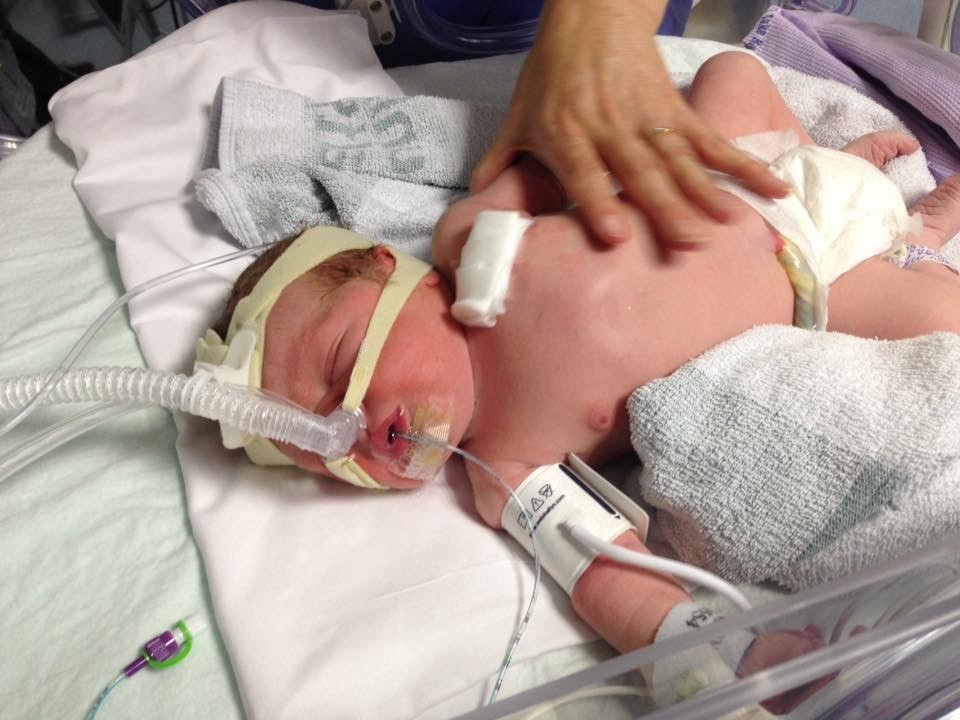
Over the next few days, Henry was taken off the ventilation, and his chest drain came out. One by one, each of the tubes and wires were taken away. One of the nurses even let me hold him.
They started to feed him formula through a tube and I started to express, first colostrum and then milk, when it came in. One of the nurses helped me to use the pump, then helped me to actually latch Henry on and feed him. It was so emotional.
They tried a few times to transfer us back to Barnstaple, but it fell through because other babies needed the beds.
On 29 September we were transferred to Barnstaple. The transfer team were amazing, chatting with me all the way. The doctors in Exeter had said we could go home once Henry had finished his last dose of IV antibiotics the next day. Once we got to Barnstaple, the nurses didn't seem so sure, but the doctors there reassured me.
The following afternoon, the doctor came in and said they were a bit concerned that Henry’s breathing was a bit fast and so they wanted to keep us in another 24 hours just to keep an eye on it. That was really hard.

After checking his breathing overnight they told me at about lunch time, we were free to go. It was the best news ever. We took Henry home at eight days old.
I think I just went along with everything that happened at the time. It was only about six weeks later that I realised how poorly he really was. Luckily, though, he is completely healthy now and you would never know there had ever been a problem apart from two small scars on his chest.
If you have been affected by any of the issues mentioned in this post and would like support, view our online support pages.
